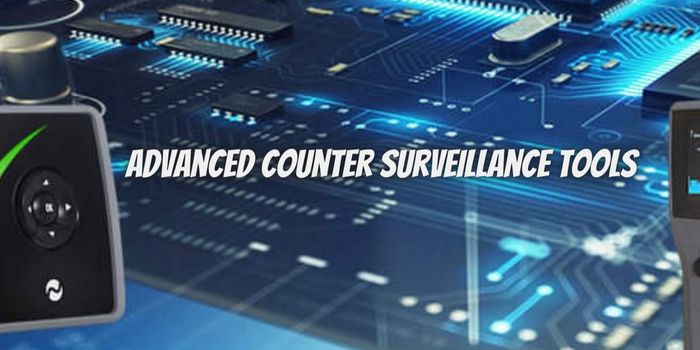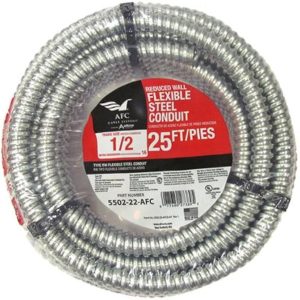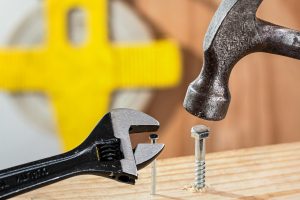Advanced Counter Surveillance Tools
No matter if it be from an ex-spouse who may be spying or from an employer who wants to spy, counter surveillance tools can help detect unwanted monitoring.

RF Detectors
RF detectors, commonly referred to as bug detectors, are an invaluable way to protect your privacy. These devices can scan and identify the RF signature of any devices transmitting data – such as hidden cameras or wireless microphones – in the immediate area.
Utilizing spectrum analyzers, they can detect any wireless signal being released by spy devices as well as microphones which pick up ambient audio. They do this by showing the exact frequency of any culprit device causing trouble.
Popular RF detectors can locate analog RF bugs ranging from 1.2G to 5.8G frequencies, including baby monitors and cordless phones. They offer an affordable yet effective way of protecting your home, office or vehicle. You can click the link: https://electronics.howstuffworks.com/spy-gear1.htm to learn more about RF bugs and listening devices.
Some models even feature laser and white noise detection modes which help stop phone tapping devices as well as listening devices from accessing sensitive areas of your property or vehicle. Some of these counter surveillance devices even come equipped with signal displays and light indicators. This can increase the ease of use of these items.
Spectrum Analyzers
Spectrum analyzers are multipurpose tools used to detect radio frequency (RF), visible light, and carrier current transmissions from surveillance devices in different technological formats including radio frequency (RF), microwave and infrared spectrums. Furthermore, spectrum analyzers can also be used for site surveys for communication systems, conducting emissions analyses as well as investigating misuse of the spectrum.
A swept spectrum analyzer contains an RF down-converter, bandpass filter and oscillator to produce its output signal. It displays power on its y-axis while frequency appears on the x-axis.
Sweep time is determined by setting resolution bandwidth setting – narrower filters take more time for their signals to settle when compared with wider filters – so more time must be allowed for signal to settle prior to being swept over again.
Spectrum analyzers are used by professionals in TSCM to track interference, locate signals and detect hidden surveillance devices. You can visit this site to learn more.
Spectrum analyzers come in various form factors – including handheld, compact and benchtop models – with handheld models typically featuring battery or rechargeable operation as well as features to reduce screen glare and rugged components to reduce weatherproofing issues.

NLJDs
NLJDs (Non Linear Junction Detectors) utilize digital spread spectrum technology to scan walls, objects, containers and furniture for electronic devices that might be concealed.
When these detectors detect semi-conductor junctions of electronics such as microphone amplifiers, dictophones or hidden cameras they emit a harmonic signal which rereflects back to their receiver device which illuminates when detected; depending on its model it may even alert an operator that there may be hidden circuitry present.
NLJDs are well suited for nonmetallic or organic surfaces like carpets, wood paneling, paper and wooden furniture.
Although you could potentially discover listening devices, GPS trackers and hidden cameras using this equipment, any results should first be verified through metal detection, X-Ray examination and thermal viewer inspection to ensure time spent searching is spent wisely.
Audio Detectors
Counter surveillance tools with sophisticated detection features detect listening devices, commonly referred to as bugs.
These tiny microphones pose a significant privacy threat in various settings such as offices, hospitals, schools and homes; to stop this from happening bug detectors produce masking sounds which reduce microphone sensitivity on spying devices while blocking incoming audio signals.
Professional bug detection devices typically perform an RF sweep and can even pinpoint where transmitters may be in a room, making them useful tools for large corporations, law enforcement and private investigators alike. These advanced units are typically purchased by these groups.
Audio verification systems offer greater coverage than motion detectors; they can detect sounds coming from all sides or behind corners and out of sight of sensors.
This feature can be particularly beneficial in production facilities where monitoring stations could hear someone fidgeting with locks before any break-in occurs, providing time to alert law enforcement before criminals gain entry and start their attacks.
There are many different tools available to help find any tracking device that may be present.














Post Comment
You must be logged in to post a comment.